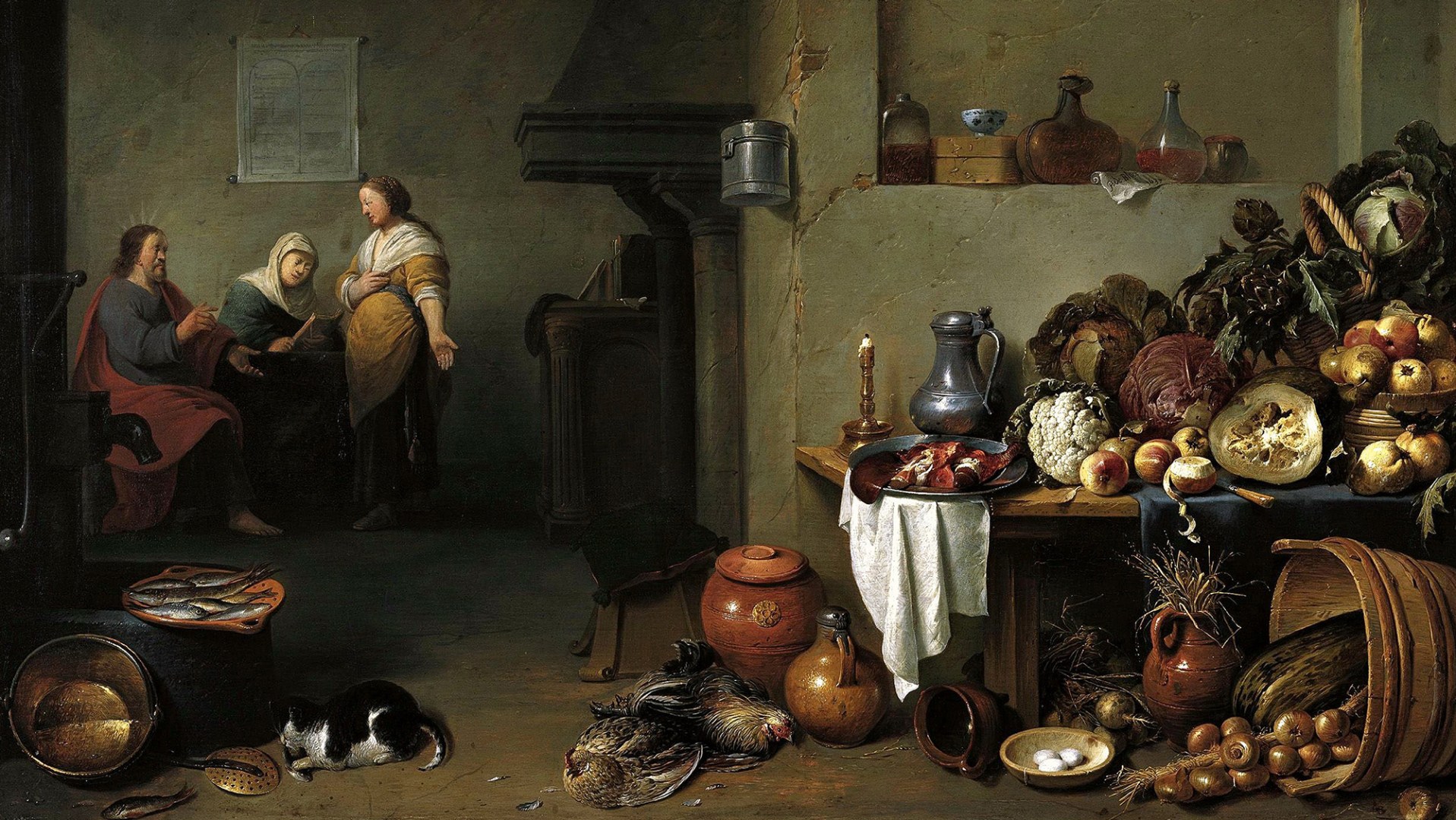Earlier this year a paperwhite flower perched on my windowsill began to bloom. Small and green, it forced its way out into the sunlight. I had been busy planning a May wedding, and this flower embodied the promise of winter turning into spring—a gift freely offered to all of us completely apart from our own efforts.
In the slow moments between checklists and caterers and chair rentals, I have often pondered Jesus’ words from Luke’s gospel and his friendship with Martha. This story is familiar, but now I hear it in a new way.
Martha and her sister, Mary, are at their home with Jesus along with a houseful of guests. Jesus had been traveling and ministering away from home. He and his friends must have been glad to see each other after a time apart. Mary sits at Jesus’ feet with the disciples. Martha works in the kitchen, protesting that her sister should come in and help with the preparations. Jesus’ reply kept tumbling around in my head: “Martha . . . only one thing is necessary” (Luke 10:42, NASB).
Martha’s complaint often gets retold as a moralistic caution for us to not be too busy with work, but I think their conversation is more complex. Martha’s generosity was very important to Jesus’ ministry. The travelers were weary, without money for a meal or hotel. Martha’s provisions met Jesus’ needs. I think he was grateful for her contributions. He also loved her very much. In his questions, he shows that he doesn’t just love her for her service to him, but he loves her for who she is. His love is the one necessary thing.
Jesus doesn’t seem concerned with serving the guests or Martha’s sister, or with anyone’s cultural expectations. He trusts that those things will work out. Over and above the food and shelter Martha offers him, he wants to provide for her instead. Beyond hospitality, he offers friendship. And in this, he invites her into his presence.
When I am a guest in someone’s home, I am usually careful to pay attention to the house rules. It’s customary to express gratitude with a thank-you card or a gift. Even in our casual, Western culture, we still appreciate these social gestures. Or if I stay in a vacation rental, I try to leave a positive review so that the rental owner might return the favor to me as a guest. We live by these pleasantries, some spoken and some subtle. We like to be invited back.
But this sort of transactional kindness is not what Jesus is demonstrating. He’s not interested in Martha’s friendship for his own gain. He shows a love for Martha that is personal. He cuts through her expectations and invites her graciously into friendship. He knows her and offers her rest, not a reprimand.
As I found myself in the new and joyful season of wedding planning, there were lists to make, addresses to update and details to sort out before the celebration. It was easy to get stressed about the details. When my happiness is wrapped up in my plans, the small stuff gets stuck right in the middle of our relationship. Like a log wedged sideways in the creek, stress impedes our natural patterns of connection.
Marriage is not about the wedding itself; it’s about life together. When I got caught up in the details, I had to stop and remember that my desire is not a perfect wedding but a relationship.
Sometimes I unknowingly choose to live on the fumes of life’s distractions because getting lost in the details might be a way to cope with feelings of emptiness, pain, or frustration, just beneath the noise of my to-do list. I think I can hear it thinly veiled in Martha’s protests from the kitchen, “Jesus, why don’t you make my sister come help me in here?”
And his reply is again, a gentle invitation: Only one thing is necessary. Will you choose me?
As I pondered the flower on the windowsill, I was reminded that I don’t need to make preparations. I don’t need to list all the good things I plan to do. I can just say yes to his invitation. The better part is the relationship. In God’s economy, even when there are a thousand things that need to be done, only one thing is truly necessary: love, freely given and received.
Sandra McCracken is a singer-songwriter who lives in Nashville. Follow her on Twitter @Sandramccracken.
Have something to say about this topic? Let us know here.










